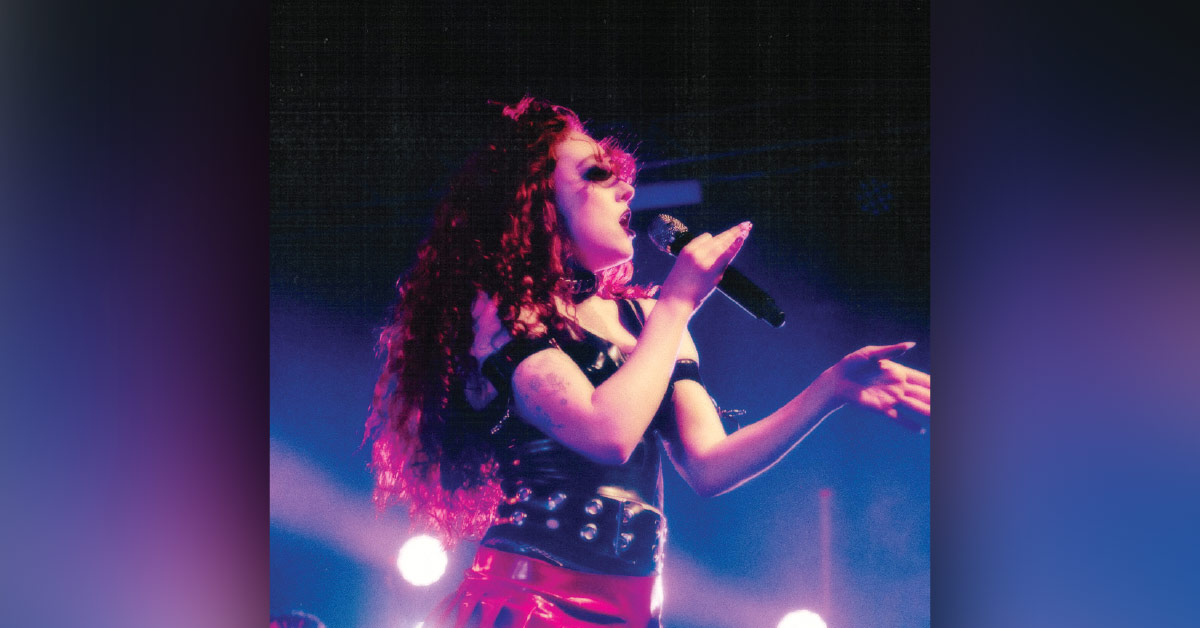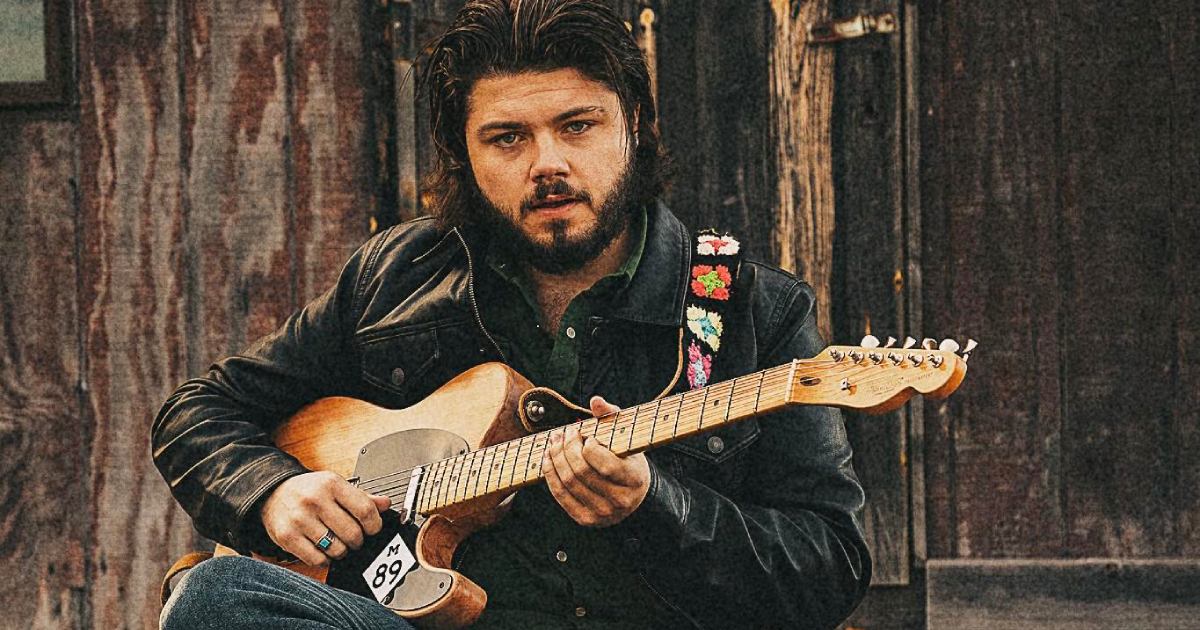If you haven’t yet sat down and listened to Kayleigh Amstutz–better known as Chappell Roan–you’ve certainly seen her across social media and news outlets. From Vogue to Billboard Hot 100, the 26-year-old musician has taken over the digital landscape with her drag-inspired style and queer-pop anthems.
Her latest album, The Rise and Fall of a Midwest Princess, parades themes of pride, empowerment and inclusivity that have reached corners of the gay community even Amstutz didn’t know existed. This ascent to fame has crowned Amtstutz in more than just extravagant wigs–sometimes filled with butterflies and cigarettes, as seen on her Tiny Desk Concert by NPR Music. It’s given her a political voice.
Amstutz’s responsibility to represent LGTBQ+ voices has been stacked high across major news headlines since her album’s release. But when Revue caught up with her this spring, we asked Amstutz what story she wanted the media to tell about her.
“I wish reporters or journalists would ask, ‘How are you giving back to your community?’ I’m very curious to see what that looks like for artists.”
Amstutz gives revenue from her performances, including money from ticket sales, to various queer organizations such as The GLO Center, For The Gworls and The Trevor Project.
“I don’t advertise that as much anymore, but it’s still daily. It’s still part of every ticket I sell,” Amstutz said.
She also hires local drag queens to open up her shows on tour.
“That’s my whole mission statement. It’s sick to sell merch and whatever, and to sell out shows, but I really just want to hire local drag queens,” Amstutz said. “I’m not even trying to peacock right now. I genuinely just want to throw parties for gay people in small towns that don’t get it.”
Speaking of her fans, Amstutz financially supports them, too.
“I have a scholarship program where I can offer people tickets who can’t afford them,” Amstutz said. “I just really uplift the queer community.”
But in order to build a safe queer space for her fans, Amstutz first had to find one for herself, which meant looking far beyond her Midwest upbringing in Willard, Missouri. Amstutz moved to Los Angeles in 2018, where she began to explore her sexuality and musicality.
“I was privileged enough to move to a community of gay people where they really helped raise me up,” Amstutz said. “I never was ashamed to be queer in Los Angeles. I think it just took growing up, moving out, meeting other people, and seeing different lives.”
This change of scenery also encouraged Amstutz to write the music that has come to define her career.
“I think [my song] ‘Pink Pony Club’ definitely got me there,” Amstutz said.
“To release it, and stand behind it, and vouch for it was really difficult because I was scared, and I felt like an imposter. It was only until recently I didn’t feel like an imposter.”
Though Amstutz wrote “Pink Pony Club” on Valentine’s Day six years ago, she didn’t release it until April 2020.
“It was scary because it was complete. It’s what I wanted to write, but I didn’t know what it entailed, and I guess all of right now is kind of the repercussion of the song,” said Amstutz.
“I really had to push myself out of my comfort zone.”
Now with even more success under her wing, Amstutz has proven to herself that she can trust her gut when it comes to her songs and image.
“I still feel like an imposter in a lot of ways, but not in my creative direction. I think it just took a lot of failing and feeling, ‘Oh, that doesn’t feel right, that’s right, that feels great. I don’t want to wear that, I want to wear this. I want to do my makeup like that, I don’t want to be put in this box,’ etcetera.”
However, Amstutz’s bedazzled leotards and sex-positive lyrics haven’t come without criticism–especially from those with more conservative viewpoints.
“The thing I don’t really appreciate is people being like, ‘My god she’s so inappropriate,’” Amstutz said. “I just feel like people think I’m more inappropriate than I am simply because I’m talking about girls.”
Her music reaches people who may not be familiar or comfortable with the topic of queerness, but that doesn’t bother her.
“I just don’t really think about what the people in the society I grew up with think about it. A lot of people don’t even know a gay or transgender person, so I’m just like whatever, you just don’t know what it is and you’re just freaked out by it,” Amstutz said.
“It’s pop music. It’s not that serious.”
In fact, these critiques keep Amstutz going. With fans that span both coasts and beyond, Amstutz has learned that there are pockets of pride hidden in even the most unassuming towns across America.
“There are queer communities everywhere, like everywhere, in the smallest of towns. Touring throughout the U.S., it’s like, ‘Oh my god, there are queens in every single tiny city we go to,’” Amstutz said. “I think that was really inspiring. There are queer kids, they just may be hiding, you know?”
Amstutz’s mission is to give those kids a place where self-expression is not only allowed, but encouraged. She even asks fans to attend her concerts in costumes that correspond to a unique, show-specific theme.
“I have people dress up because everyone else is going to dress up there, and they’re not going to get made fun of. It gives them an opportunity to do that if they want.”
As Amstutz’s career continues to gain attention from major media outlets, so does her mission to protect and uplift queer people around the world. Whether it’s donating her time and money, or hiring local drag artists to join her performances, Amstutz is giving everyone the chance to become a Midwest Princess.
“That’s what it’s about for me,” Amstutz said. “To just throw kids parties who couldn’t come out in high school.
Chappell Roan
Kalamazoo State Theatre
June 1, 7 p.m.
kazoostate.com





